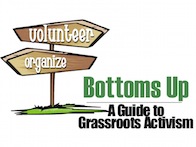Upon entering the new millennium, our nation has endured the most punishing years in our people's history. More people began a prison or a jail term in the United States in the last 20 years than any other decades on record. There are now over two million incarcerated in the country often called "The Land of the Free."
It is no secret that punitive drug laws fuel this terrible rush to imprisonment. By studying drug law convictions over the past twenty years, researchers have produced alarming figures. The number of people sent to jail or prison for drug law violations increased more than tenfold. One in four prisoners in the United States is serving time for a drug law violation. In the federal system, these people make up 55% of the prison population.
Prison punishment increased dramatically with laws in the mid 1980's -- laws that created Mandatory Minimum sentencing, the US Sentencing Guidelines, and abolished parole. Today the Sentencing Guidelines are advisory, but those sentenced before 2004 were not granted retroactive sentencing relief.
It is no secret that punitive drug laws fuel this terrible rush to imprisonment. By studying drug law convictions over the past twenty years, researchers have produced alarming figures. The number of people sent to jail or prison for drug law violations increased more than tenfold. One in four prisoners in the United States is serving time for a drug law violation. In the federal system, these people make up 55% of the prison population.
Prison punishment increased dramatically with laws in the mid 1980's -- laws that created Mandatory Minimum sentencing, the US Sentencing Guidelines, and abolished parole. Today the Sentencing Guidelines are advisory, but those sentenced before 2004 were not granted retroactive sentencing relief.

Many women are raised in poverty and have struggled with addiction. After years in prison, held far from home and loved ones, they suffer under prison policies designed to corrupt, weaken and eventually destroy family ties.

Index of Stories A - J • Index of Stories K - Z

- G. Patrick Callahan, co-founder of the November Coalition
Index of Stories A - J • Index of Stories K - Z
30 Years -- Marijuana Conspiracy
Mauricio was a founding member of November Coalition in 1997-98, one of the Dirty Dozen who helped launch our movement and co-write public presentations with Director Nora Callahan.
“I was indicted for a conspiracy of marijuana trafficking and money laundering. Prior to this I had never been arrested on any such charges; however, someone told the authorities that I was their supplier. That is all it took. The person who informed on me was trying to make a deal. He had been set up in a sting operation by DEA agents.
Read Mauricio's story
From the time of arrest through imprisonment, drug defendants suffer severe restrictions on their human and constitutional rights. Many criminal justice experts insist there is a "drug exception" to each protection listed in the Bill of Rights.
Working in prison factories for as little as 12¢ an hour, drug law violators are at the mercy of hastily trained guards and predatory inmates. In a prison system crippled by overcrowding and budget restrictions, human rights abuses abound.
Working in prison factories for as little as 12¢ an hour, drug law violators are at the mercy of hastily trained guards and predatory inmates. In a prison system crippled by overcrowding and budget restrictions, human rights abuses abound.
The November Coalition staff endeavors to verify the accuracy of these WALL stories, written by the prisoners themselves. However, many prisoners are not able to possess the documents necessary for complete verification. The November Coalition assumes no responsibility for the content of these stories. Credentialed media can be provided with documentation and family contacts if they wish to research a story.

